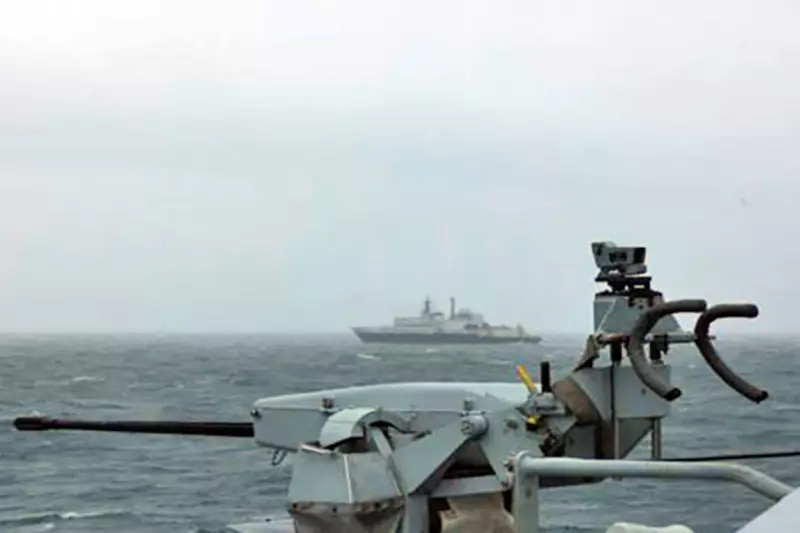
Britain's Defence Secretary has issued a stark warning to the Kremlin after a Russian spy ship was caught directing lasers at Royal Air Force pilots monitoring its activities near UK waters.
John Healey described the actions of the vessel, the Yantar, as a 'deeply dangerous' escalation, confirming that military options are prepared should the ship move further south.
A 'Research' Vessel with a Covert Mission
The Yantar is no ordinary ship. Constructed for the Russian Navy's secretive Main Directorate of Underwater Research (GUGI), it was launched in 2012 and entered service in 2015. At 107.8 metres long and capable of speeds up to 15 knots, its official purpose belies its true function.
According to security analysts at the Council on Geostrategy, the Yantar is designed to operate submarines for deep-sea intelligence gathering, with a focus on potential sabotage of critical underwater cables.
This is not its first appearance near allied territories; the ship has previously been tracked operating near the Caribbean, Brazil, Norway, and Ireland.
Laser Incident and the Threat to UK Infrastructure
The confrontation escalated when the Yantar, which was being shadowed by Royal Navy frigates and RAF P-8 Poseidon aircraft, directed lasers at two of the UK planes. Mr Healey stated this was the first time such an action had been taken against the RAF from this vessel.
Elisabeth Braw, a senior fellow at the Atlantic Council, labelled the laser use a clear 'escalation', intended to disrupt and impede the pilots from carrying out their surveillance duties.
The Defence Secretary reiterated that the Yantar's presence is part of a broader Russian programme aimed at threatening the undersea infrastructure—such as internet cables and gas pipelines—that the UK and its allies depend on.
Is the UK Prepared for an Underwater Attack?
While the Yantar has been operating within the UK's exclusive economic zone, it has remained on the edge of the country's 12-nautical-mile territorial waters. Mr Healey sought to reassure the public, declaring, 'we are ready' to respond if the ship advances south.
A September report from the National Security Strategy committee had already warned that attacks on undersea cables could cause 'catastrophic disruption' to financial and communication systems.
However, expert analysis from Dr Sidharth Kaushal of the RUSI think tank suggests that while the UK's undersea cable network has redundancy, the pipelines delivering gas are far more fragile and vulnerable to a potential attack.





